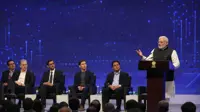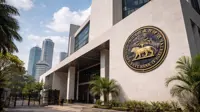Norway minister meets Sibal over 2G licence cancellation
07 Feb 2012
Furious lobbying continued today over the Supreme Court's verdict cancelling 122 telecom licences. Norway was particularly prominent as Rigmor Aasrud, its minister of administration, reform and church affairs, met telecom minister Kapil Sibal.
Telenor, Norway's biggest telecom company, which is 54 per cent owned by the government and owns around 67 per cent in Uninor, its joint venture with India's Unitech, has invested over Rs14,000 crore in India.
"We had good, fruitful and constructive meeting with the telecom minister. We took up Telenor's case along with other issues," Aasrud, who also looks after the information technology sector, told reporters after the meeting.
Ahead of her meeting with Sibal, Aasrud had defended Telenor. "Telenor has not done anything wrong in India … I think the licences were handled out to companies before Telenor was part of the mobile market in India. I think that is what it is. We are following the situation closely."
Sibal on his part told reporters after the meeting in New Delhi, "Both the minister and Telenor officials met me and we had a dialogue ... I told them that [the court verdict] will bring clarity to the sector. The sector is robust and enough spectrum is available.''
Uninor and Sistema-Shyam are perhaps the two relatively new foreign-controlled telecom operators who have made serious efforts to roll out services and increase their market share, rather than looking on spectrum as a saleable asset.
Russia's Sistema too has indicated that it is gearing up to challenge the Supreme Court order cancelling its licences.
Telenor has sporadically threatened that it may pull out of India if future conditions prove too adverse; but both Sistema and Telenor have said they may re-bid if and when a fresh auction of radio spectrum occurs.
Perhaps the biggest trouble for these operators is that they will not get much support from a scam-beleaguered government. Although reportedly disgruntled by the apex court's ruling, it is unlikely to support any challenge of the decision.




















